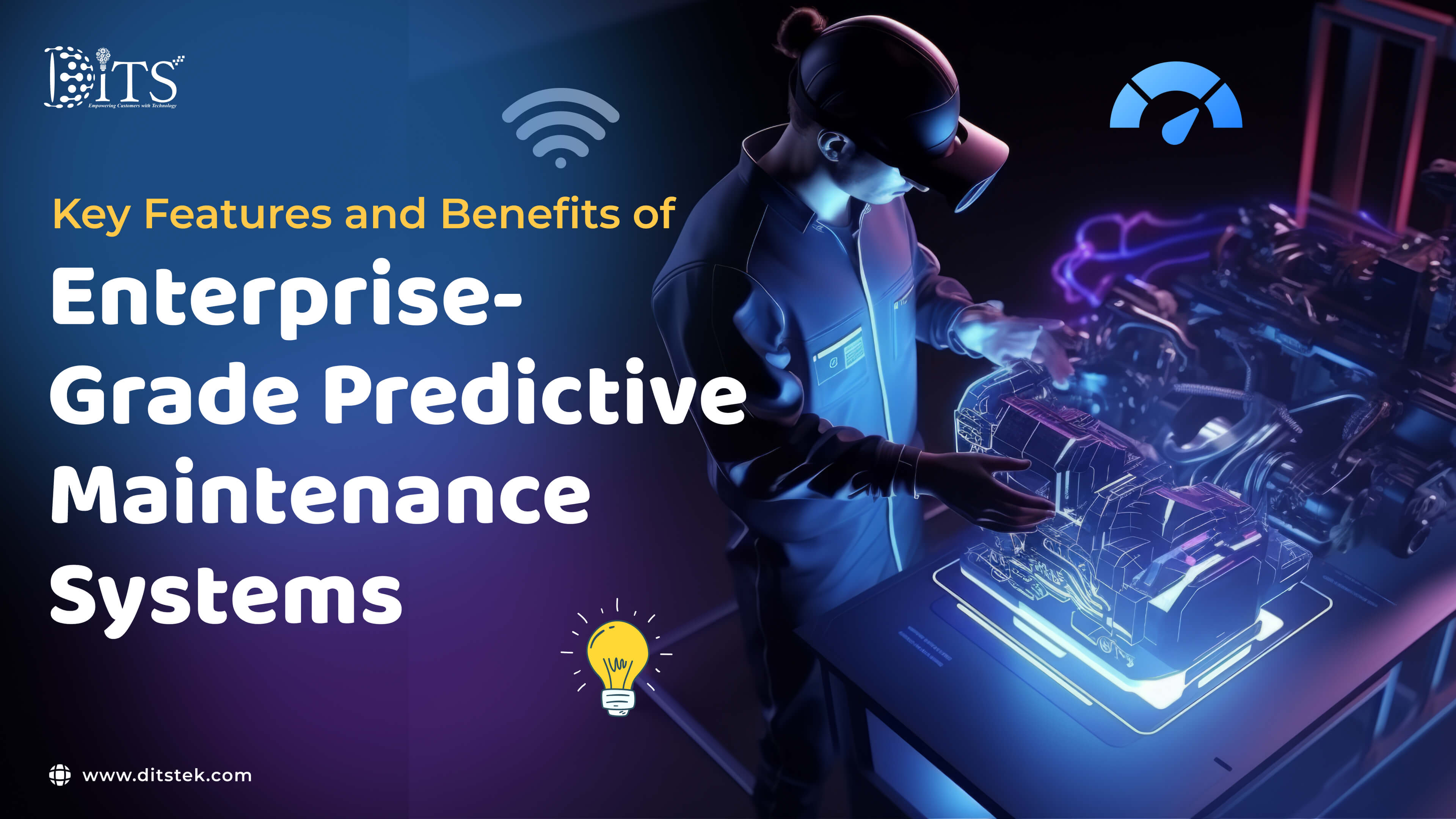From Mining to E-Commerce: How South Africa’s Industries Can Thrive with IT
Table Of Content
Published Date :
26 Dec 2024
South Africa’s economy is a vibrant mix of tradition and innovation. On one hand, you have industries like mining and agriculture that have been around for decades, serving as the backbone of the nation’s GDP. On the other, there’s a wave of tech-driven sectors like e-commerce and HealthTech that are making their mark and reshaping how business is done.
However, as the world gets more digital, even the most traditional industries are under pressure to adapt. Efficiency, sustainability, and innovation are now survival tools. Whether it’s mining companies improving safety with AI or retailers enhancing customer experiences through data analytics, technology drives change across the board.
In this blog, we’re diving deep into the industries that make South Africa tick. You’ll learn:
- How major industries like mining, agriculture, and e-commerce contribute to the economy.
- The challenges holding businesses back—and the opportunities waiting to be seized.
- How IT solutions are transforming these sectors and unlocking growth like never before.
By the end of this read, you’ll understand why South Africa is at a tipping point and how businesses can harness the power of technology to thrive in a competitive global marketplace.
Ready? Let’s get started.
South Africa’s Key Industries at a Glance
South Africa’s economy is as diverse as its people, with each sector playing a crucial role in driving growth, creating jobs, and shaping the nation’s identity. Let’s take a closer look at the industries that matter most.

Mining
Mining is practically synonymous with South Africa. As one of the world’s top producers of gold, platinum, and diamonds, this sector has long been a cornerstone of the economy, accounting for 8% of the nation’s GDP.
But the glory days of abundant ore and cheap extraction are fading. Rising operational costs, safety concerns, and aging infrastructure are major hurdles.
The silver lining? Technology.
Solutions like AI-powered predictive maintenance and real-time monitoring systems are revolutionizing how mines operate, making them safer, more efficient, and more profitable.
Manufacturing
Manufacturing is the heartbeat of industrial development in South Africa. From cars to chemicals, this sector fuels domestic growth and exports. However, outdated machinery, a lack of automation, and global competition are stifling progress.
With the advent of Industry 4.0, there’s an opportunity to reinvent manufacturing through robotics, smart factories, and data-driven decision-making. Imagine cutting costs while boosting production—it’s all within reach, especially for the industry making up about 13% of the whole country’s GDP
Agriculture
Agriculture might not contribute a massive share, but it’s a lifeline for millions, especially in rural areas, even with its 2.5% share in South Africa's GDP. The sector holds untapped potential, particularly with the integration of AgriTech solutions like precision farming, drone monitoring, and IoT-based irrigation systems.
The challenge is clear: grow more with less—less water, less land, and fewer resources. The solution? Smart tech that helps farmers maximize efficiency and sustainability.
Renewable Energy
Let’s talk about South Africa’s energy crisis. Rolling blackouts (aka load shedding) are a daily frustration, costing businesses billions. Enter renewable energy. Solar, wind, and hydro projects are growing across the country, driven by government incentives and private-sector investment.
The big question: how do you scale these solutions to meet the country’s energy needs? That’s where advanced tech like grid management systems and AI-based energy forecasting can make all the difference.
E-Commerce & Retail
South Africa is quickly becoming a hub for online shopping, thanks to widespread mobile internet access and a growing middle class. From fashion to groceries, more people are turning to their smartphones to make purchases.
Behind every smooth transaction is a web of tech solutions—payment gateways, logistics platforms, and AI-driven personalization tools. As e-commerce grows, so does the need for robust IT infrastructure.
HealthTech
South Africa’s healthcare system is at a critical juncture. With a growing population and limited resources, the need for innovation has never been greater. Enter HealthTech, where telemedicine platforms, AI diagnostics, and electronic health records are paving the way for more accessible, efficient care.
Logistics & Transport
Transport and logistics are the unsung heroes of South Africa’s economy, connecting goods to markets and people to opportunities. But inefficiencies—like congested ports and outdated systems—are slowing things down.
With IT solutions like real-time tracking, automated warehouses, and AI-driven route optimization, this sector can overcome its bottlenecks and become a growth driver.
Let’s Make Your Business the Next Big Thing in South Africa!
Want to stand out? DITS crafts custom software that’s as unique as your business. From automation to innovation, we’re here to make your operations smooth & seamless!
Business Challenges and Opportunities in the South African Market
Every industry has its challenges—but with the right approach, challenges can turn into opportunities. Here’s what South African businesses are up against and the doors that are waiting to be opened.
Challenges in the South African Market
High Operational Costs
Doing business isn’t cheap. Rising energy prices, labor costs, and inefficiencies are hitting industries like mining and manufacturing particularly hard, leading to shrinking profit margins.
Infrastructure Gaps
Unreliable energy supply, aging transport systems, and patchy digital networks are holding industries back from reaching their full potential.
Workforce Challenges
Skills shortages are a recurring theme, especially in tech-heavy sectors. While there’s plenty of talent, the gap between what industries need and what the workforce offers is a real problem.
Political Instability
Regulatory uncertainty and socio-political tensions hinder a stable business environment, especially for industries like renewable energy and logistics needing long-term planning.
Opportunities for Innovation with Technology
Digital Transformation
The good news? Businesses are waking up to the potential of digital tools, which is making it easier for companies to innovate and compete globally.
Efficiency Gains
The potential for efficiency gains is enormous with mining companies reducing downtime with predictive analytics or manufacturers cutting waste with smart automation with AI, etc.
Expanding Markets
E-commerce is opening up new markets for South African businesses, while the global push for renewable energy is creating demand for green tech and services.
South Africa’s industries are standing at a defining moment. Challenges abound, but so do opportunities—and the right IT solutions can make all the difference. The key is to act now before the competition gets ahead.
How IT Solutions Drive Industry-Specific Growth
South Africa’s industries are diverse, but they share one common denominator: a growing need for technological innovation. IT solutions are no longer optional—they’re essential for overcoming hurdles, optimizing processes, and driving sustainable growth. Let’s dig into how IT is shaping the future of some of South Africa’s most critical sectors.
Mining: Digging Deeper with Digital Transformation
Mining remains the bedrock of South Africa’s economy, accounting for a significant portion of exports and foreign exchange earnings. Gold, platinum, and diamonds might sparkle, but the industry faces some serious challenges beneath the surface.
Pain Points:
- Safety remains a perennial concern, with mining being one of the riskiest industries in the world.
- Efficiency is often compromised by aging infrastructure and unpredictable downtime.
- Operational costs—driven by energy prices and labor—are soaring.
Opportunities for IT Solutions:
IoT-Enabled Monitoring Systems: Picture this: sensors embedded in equipment provide real-time data on wear and tear, preventing costly failures and enhancing worker safety.
AI and Big Data Analytics: By analyzing geological data, AI can pinpoint resource-rich areas, reducing the guesswork and costs of extraction.
Autonomous Vehicles: Driverless trucks and drills powered by AI are already making mining operations safer and more efficient in countries like Australia—South Africa can follow suit.
In short, mining companies that invest in digital transformation aren’t just mining resources—they’re mining insights and operational efficiency with sophisticated mining industry software solutions.
Healthcare: Transforming South Africa’s Health Sector with Technology
South Africa’s healthcare sector is at a critical juncture, with increasing demand for quality services, efficient care delivery, and better patient outcomes. Yet, like any system under pressure, it faces its share of challenges.
Pain Points:
- Overburdened healthcare systems and staff leading to longer wait times and compromised care.
- Fragmented patient data across various systems, causing inefficiencies and errors.
- Limited access to healthcare in rural areas, leaving many without critical services.
- Increasing healthcare costs with a growing burden on both providers and patients.
How Healthcare Software Solutions in South Africa Can Help
Telemedicine & Remote Care: By integrating telemedicine platforms, healthcare providers can deliver services to patients in remote areas, improving access to care without the need for physical visits. Virtual consultations and remote monitoring can save time and resources while expanding care reach.
Electronic Health Records (EHRs): Implementing EHRs ensures that patient information is centralized, making it easier for healthcare professionals to access accurate data in real-time. This reduces the chances of errors, improves decision-making, and enhances overall patient safety.
Data Analytics for Better Decision-Making: Using big data analytics, healthcare providers can uncover patterns in patient care, identify trends, and optimize treatments. Predictive models can also help anticipate patient needs, reduce costs, and improve outcomes.
AI-Powered Diagnostics: AI can assist healthcare professionals in diagnosing conditions faster and more accurately. Machine learning algorithms can analyze medical images or patient data to help detect diseases early, allowing for better outcomes.
Patient Management Systems: A centralized system for managing appointments, patient interactions, and billing can streamline processes, reduce administrative overhead, and improve patient satisfaction.
Make Your Healthcare Practice Seamless with Custom Software in South Africa!
From patient management to real-time data analytics, DITS can help revolutionize healthcare with software designed to improve outcomes and make operations smoother.
Manufacturing: Driving Efficiency in South Africa’s Industrial Backbone
Manufacturing is the engine of industrialization, providing jobs, boosting exports, and driving GDP growth. However, this engine is in desperate need of a tune-up.
Pain Points:
- Outdated equipment is stalling progress and inflating production costs.
- Supply chain inefficiencies are making it harder for manufacturers to compete globally.
- Manual processes are prone to errors, delays, and waste.
How Software Solutions for Manufacturing Can Help South Africa
Automation: AI can streamline assembly lines, reduce human error, and improve production speed. For example, predictive maintenance systems can alert manufacturers before a machine breaks down, saving both time and money.
Supply Chain Management Tools: With tools that track and optimize logistics in real-time, manufacturers can cut delays and improve delivery reliability.
Cloud-Based Collaboration: Remote work is here to stay. Cloud platforms allow teams to collaborate across geographies, ensuring productivity isn’t hampered by physical distance.
Manufacturing 4.0 isn’t just about survival—it’s about positioning South Africa as a global player in industrial innovation.
E-Commerce & Retail: The Rise of the Digital Shopper
E-commerce in South Africa is booming, fueled by mobile-first consumers and a growing appetite for convenience. This sector represents the future of retail, but it comes with its own set of challenges.
Pain Points:
- Logistics remain a nightmare, especially for businesses catering to rural areas.
- The demand for seamless omnichannel shopping experiences—combining online and offline—is hard to meet.
How Software Solutions for eCommerce & Retail Can Help
Integrated E-Commerce Platforms: From payment gateways to marketing tools, unified platforms simplify operations and reduce friction for businesses.
Data-Driven Personalization: AI tools analyze customer behavior to offer tailored recommendations, boosting sales and customer loyalty.
The takeaway? South Africa’s retailers need to view IT not as an expense but as an enabler of growth in an increasingly digital marketplace.
Logistics & Transport: Moving Goods, People, and Growth
Logistics isn’t just about moving goods—it’s about connecting the dots that make an economy function. In South Africa, efficient transport systems are vital for domestic trade and export competitiveness.
Pain Points:
- Rising fuel costs are eating into margins for logistics companies.
- Inefficient routing leads to delayed deliveries and higher emissions.
- Poor infrastructure, from roads to ports, remains a persistent bottleneck.
Possible Software Solutions for Logistics & Transport
AI-Powered Logistics Platforms: By using predictive analytics, these platforms optimize delivery routes, reduce fuel consumption, and ensure on-time arrivals.
Smart Transportation Systems: IoT-enabled fleet management tools provide real-time tracking and diagnostics, minimizing downtime.
Green Logistics Solutions: With increasing global focus on sustainability, tech-driven solutions like electric vehicles and carbon tracking software are gaining traction.
The future of logistics in South Africa lies in tech-enabled efficiency and sustainability. Businesses that adopt these solutions now will lead the pack.
Renewable Energy: Powering South Africa’s Future
South Africa’s energy sector is at a crossroads. With load shedding wreaking havoc on businesses and homes alike, renewable energy isn’t just an option—it’s a necessity.
Pain Points:
- Load shedding disrupts business continuity and productivity.
- Grid instability makes it difficult to integrate renewable sources like solar and wind.
- Over-reliance on coal is not just unsustainable—it’s a ticking environmental time bomb.
Software Solutions for Renewable Energy Industry Entail
Smart Grid Solutions: These systems balance supply and demand, preventing blackouts and making energy distribution more efficient.
IoT Sensors: Installed in renewable energy farms, these sensors monitor generation and consumption in real-time, allowing for better decision-making.
Energy Optimization Software: Both businesses and consumers can use these tools to track usage and reduce waste, making renewable energy adoption more attractive.
The renewable energy sector is not just about generating power—it’s about empowering South Africa to take control of its energy future.
South Africa’s Economic Landscape: Trends to Watch

South Africa is at a pivotal juncture where technological innovation, sustainability, and digital adoption are transforming its economy. Staying ahead requires understanding and leveraging these key trends:
- AI and Automation: From manufacturing to logistics, automation optimizes costs, reduces errors, and drives efficiency. This isn't just innovation—it’s evolution.
- Sustainability: With energy challenges and climate concerns, renewable energy investments like solar farms and smart grids are vital for business resilience.
- E-Commerce Expansion: South Africans are embracing online shopping, especially on mobile. Businesses that invest in seamless digital retail experiences will gain a competitive edge.
- HealthTech: The healthcare sector is evolving with telemedicine, digital platforms, and data-driven tools that improve care delivery and access.
These trends aren’t just reshaping industries; they’re redefining the rules of business success in a tech-driven world.
Building a Future-Ready Business in South Africa with DITS
Navigating South Africa’s dynamic economy demands more than generic IT solutions—it requires expertise, innovation, and adaptability. That’s where DITS comes in.
Tailored IT Solutions: No two industries are the same, and neither are our solutions. From AI-driven tools to advanced logistics platforms, we craft strategies to meet your unique needs.
Proven Expertise: Our success stories across industries and regions highlight our ability to deliver measurable results through cutting-edge technology.
Local Understanding: South Africa’s business environment is unique, and we leverage our insights to address pain points with precision and relevance.
Comprehensive Support: We’re in it for the long haul, providing ongoing support to ensure your business stays agile and future-ready.
Innovation at the Core: With emerging technologies like AI, automation, and digital platforms, we keep you ahead of the curve.
Key Takeaways for Business Owners in South Africa:
- Innovation is essential—staying competitive means embracing change.
- IT isn’t just operational; it’s a strategic driver for growth.
- Start small, but think big—scalable digital transformation is the way forward.
Ready to Transform Your Business? The future of South African business is digital. Don’t wait for others to lead the charge—start your journey today.
Contact us now for a personalized consultation. Let’s build the future together.
FAQs
1. Why is digital transformation essential for South African businesses?
Digital transformation helps businesses improve efficiency, reduce costs, and stay competitive by leveraging cutting-edge technologies like AI, automation, and cloud-based solutions.
2. What industries in South Africa benefit most from IT solutions?
Key industries include mining, manufacturing, e-commerce, logistics, and healthcare. IT solutions address specific challenges in these sectors, such as safety, efficiency, and customer experience.
3. How can IT solutions help with South Africa’s energy challenges?
IT solutions like smart grids, energy optimization software, and IoT sensors enable better energy management, helping businesses reduce costs and improve sustainability.
4. What role does AI play in the mining sector?
AI enhances safety and efficiency by providing predictive insights for resource extraction and equipment maintenance, reducing downtime and operational costs.
5. How can small businesses in South Africa start their digital transformation journey?
Begin by identifying key pain points and adopting scalable IT solutions like cloud-based tools, automation software, or e-commerce platforms tailored to your needs.
6. What are the benefits of integrating e-commerce solutions for South African retailers?
E-commerce solutions improve customer experience, streamline logistics, and provide data-driven insights for personalization, driving growth in the rapidly expanding online market.
7. How do IT solutions improve logistics and transportation in South Africa?
AI-powered platforms enable real-time tracking, predictive routing, and smart transportation systems, enhancing efficiency and reducing operational costs.
8. Why should businesses invest in renewable energy technologies?
Renewable energy solutions reduce dependency on unreliable grids, lower costs, and align businesses with global sustainability goals, ensuring long-term growth.
9. What makes DITS unique in providing IT solutions for South African businesses?
DITS offers tailored, industry-specific solutions, a deep understanding of the local landscape, and a commitment to long-term collaboration and innovation.
10. How can IT solutions future-proof businesses in South Africa?
By automating processes, leveraging data for informed decisions, and adopting scalable technologies, businesses can stay agile, competitive, and ready for future challenges.

Dinesh Thakur
21+ years of IT software development experience in different domains like Business Automation, Healthcare, Retail, Workflow automation, Transportation and logistics, Compliance, Risk Mitigation, POS, etc. Hands-on experience in dealing with overseas clients and providing them with an apt solution to their business needs.
Recent Posts

Explore predictive maintenance software features that reduce downtime, cut costs, and boost efficiency with enterprise-grade, AI-powered maintenance systems.

Benefits of AI in real estate include better cash flow planning, improved marketing ROI, stronger pipeline visibility, and scalable growth.

We at DITS offer custom Population Health Management Software Solutions to help you measure the effectiveness and efficiency of care delivery to patients. Read our blog to know in detail.